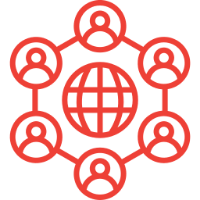Home > Trainings > EXIN Agile Scrum Foundation
EXIN Agile Scrum Foundation
EXIN Agile Scrum Foundation shows a candidate’s knowledge of the Agile and Scrum frameworks. Agile Scrum is about working together to successfully reach the goal.

Creator of quality designs and thinker of fresh ideas.
Far far away, behind the word mountains, far from the countries Vokalia and Consonantia, there live the blind texts. Separated they live in Bookmarksgrove right at the coast of the Semantics, a large language ocean. A small river named Duden flows by their place and supplies it with the necessary regelialia. It is a paradisematic country, in which roasted parts of sentences fly into your mouth.
Even the all-powerful Pointing has no control about the blind texts it is an almost unorthographic life One day however a small line of blind text by the name of Lorem Ipsum decided to leave for the far World of Grammar. The Big Oxmox advised her not to do so, because there were thousands of bad Commas, wild Question Marks and devious Semikoli.
Look deep into nature, and then you will understand everything better.
Who is this certification for?
Agile Scrum Foundation is designed to test a professional’s fundamental understanding of agile and scrum methodology. It is especially useful for those leading or participating in projects. This certification is especially interesting for professionals who work in areas including project management, software development, IT service management and business management.
Main subjects
- Agile Way of Thinking
- Scrum practices
- Scrum Planning and Estimation
- Monitoring Scrum Projects
- Advanced Scrum Concepts
The true sign of intelligence is not knowledge but imagination.
Far far away, behind the word mountains, far from the countries Vokalia and Consonantia, there live the blind texts. Separated they live in Bookmarksgrove right at the coast of the Semantics, a large language ocean. A small river named Duden flows by their place and supplies it with the necessary regelialia. It is a paradisematic country, in which roasted parts of sentences fly into your mouth.
Even the all-powerful Pointing has no control about the blind texts it is an almost unorthographic life One day however a small line of blind text by the name of Lorem Ipsum decided to leave for the far World of Grammar. The Big Oxmox advised her not to do so, because there were thousands of bad Commas, wild Question Marks and devious Semikoli.
Requirements for certification The candidate must pass the exam. It is recommended to follow a training.
Examination details Examination type: Multiple-choice questions Number of questions: 40 Pass mark: 65% Open book/notes: No Electronic equipment/aides permitted: No Time allotted for examination: 60 minutes
The Rules and Regulations for EXIN’s examinations apply to this exam.
Are there any pre-requisites for this course?
There are no pre-requisites for this course.
How do I need to take the exam?
TaUB Solutions will request the examinations together with your registration. The exam will be taken at the end of the course. Results are available within 5 working days.


